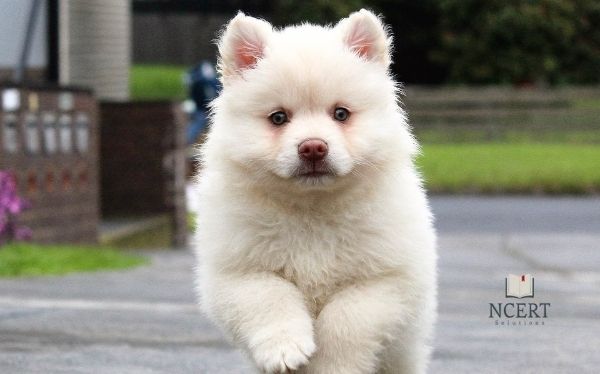Why do you need to know How to Take Care of a Puppy? Having a dog in the family can be a good decision.
The arrival of a new member of the family brings joy and love from his side and a good companion to play with loyalty and improve your lifestyle.
Even though having a dog may sound like joy, it is very important to consider several factors before adopting them. Especially, if a person is considering getting a dog for the first time.

Dogs are like best friends, they need your attention and love. If a person feels that they cannot take enough time or care after adopting a dog due to their behavior or busy lifestyle, then such people should not think of having a dog puppy.
This can cause many problems for both the owner and the dog or puppy.
Let’s know How To Care for a Puppy
1. Choosing The Right Puppy – How to take care puppy
Although puppies are incredibly cute, not all are ideally fit for your lifestyle. With the proper research and preparation, you can choose a dog that is right for your family.
if you are excited to know about different breeds, you can use some books on dog puppies. With the arrival of an outside guest in the house, the atmosphere of the house becomes so pleasant.
But a problem comes that which breed of dog should be and will be able to adjust according to our house because there are so many dogs in the world. So, it becomes very difficult to choose the right one.
Here are some tips that can help you make this task easier:
Why do you want a dog – It is very important to find the answer to the question that why you want a dog. These reasons can be anything like safety, attachment to the dog, or as a companion.
Does it suit my home and lifestyle – Before buying a dog, think about whether you will be able to take care of it. If you work, live alone, or travel, think again. Dogs require separate attention as they are not used to being alone. If you can’t take care of him, it’s best not to buy a dog.
Financial Resources – Keeping a dog is a costly affair. A lot of expenses are incurred in her upbringing, including periodic visits to the doctor, diet, etc. If you think that you can afford your dog along with you, then definitely have a dog.
Size of the dog – If you live in a small apartment and you have bought a golden retriever dog that is very big in size, then both of you will be in trouble. Before buying a dog, check the size of your house.
Breed Attention – If you saw a breed dog on TV and you liked it and you want to get the same dog, then think again. Knowing the right breed of dog is very important.
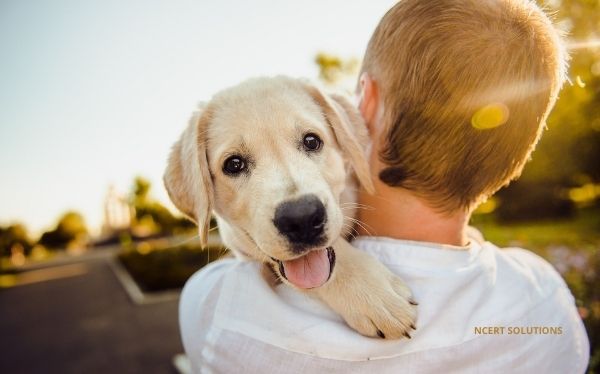
2. Getting Your Home Reddy For Puppy
Inviting a puppy into your life is a great opportunity to clean the house in a big way. But caring for a puppy can be difficult.
Puppies can chew and swallow anything, so make sure the floor is very clear of debris and that electrical cords are raised and secured.
Read: House of Hazards Game
It’s time to remove the candles, glass ornaments, and sweets from the coffee table for a while.
Cigarette butts, chocolate, grapes, and ant traps are toxic and dangerous to puppies, so all of this should be out of reach for your pet.
You can have secure doors to puppy proof so the puppy can’t enter the kid’s room. Don’t use the old-fashioned way of tying doors, they are as dangerous for puppies as they are for babies when they start walking.
Read: HEALTH CARE – How to care for yourself?
Doors that open easily should be firmly secured and you will protect it from dangerous areas and the house will be protected against accidents.
Some other points should also be noted
- Create an area in your home that is dog-only. Common options include the kitchen, laundry room, or atrium. This allows your dog to explore a confined area, and have space to feel safe and free at home.
- To proof this puppy, thoroughly clean it and remove all wires or other objects that the dog may chew, remove the jewelry, and whatever against which the puppy could run. Get rid of anything you don’t want to get dirty, chewed on, or scratched.
- Use an anti-bite liquid and keep anything away that the puppy may injure, Like – TV Remote controls, Water glass. etc.
- Give your puppy a substitute for munching on puppies. This item is mentioned above, like a chew toy with a whistle, is a substitute, specially made for dogs.
- Buy brushes that include a gentle one that can moisten the coat and a brush that eliminates knots and scuffs.
- Keep at least two bowls, one for water and one for food. they don’t need to be the same size.
- Buy blankets and any other things to make your dog comfortable. Dogs, especially puppies, are prone to stress like humans. Arriving at a new home can make your puppy tired, and it can affect his sleep. Don’t forget, if he takes sufficient sleep he will be happy.
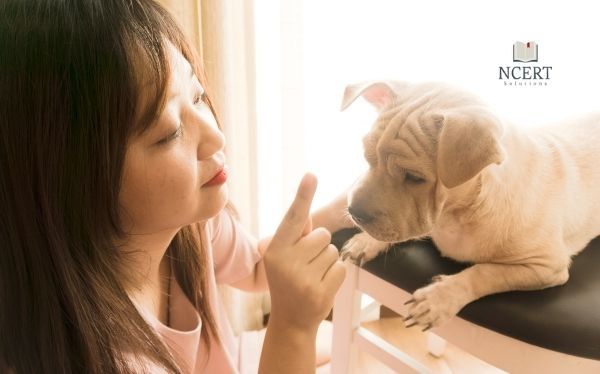
3. Naming Your Puppy
Finding an appropriate puppy name is serious business. Naming your puppy can be fun, but it can also feel like a responsibility to pull the hair out. Ultimately, it should be the perfect mix that describes everything you love about your new baby dog.
If you own a dog and you already have a dog but you have not named it, do you know what to name the dog? Many people keep a dog but do not give any name to it.
Even today I know many people who do have one or two dogs in their house without any name.
If you want to call your dog, you can’t. Because they didn’t name it. And the problem gets even worse when you have more than one dog. You can’t teach your dog anything without a name.
Keep these points also in your mind
For Dog Training
As soon as you bring a puppy inside the house, it should be given name training. If you have not put any of its names, then you will not be able to train it properly. If you want to teach him anything, you must first name him.
To Identify Your Dog
Just as humans have different identities by their names. Similarly, your dog should also be given a different name. When your dog is with other dogs, you can call him by name and mention your dog’s name when talking in front of other people.
Must be good to hear dog names
One more thing you need to keep in mind while naming your dog is that the name of the dog should sound good and it should look like a dog name. Or quite a nice and sweet name. If you have an ear-loving name, it can be quite funny.
Choose a name that is dear to the whole family
Friends, we would like to suggest that you choose a name for your dog which will be dear to your whole family. It can be any object. It could be the name of some sweet. But it would be better if you keep the name in English.
The name must fit the dog
Whatever name you put for the dog, try that it should fit perfectly to the personality of the dog. For example, if your dog is black, you can name him Black Tiger.
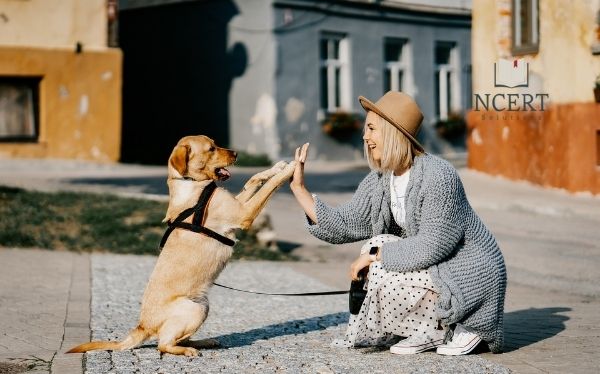
4. Essential Puppy Supplies
Essential Puppy Supplies can help while you take care of a puppy dog.
Soon after you’ve met the puppies and their mums, and you’ve chosen the cutest puppy out of them all, you’ll need to do some more research and buy some puppy supplies before bringing the puppy home.
Puppy Essentials Checklist
As soon as you visit your first pet store, you know how big the business of puppies is.
The salespeople will try to sell you everything from hot pads to remote control training systems – so you need to stay focused unless you want to buy the whole shop.
This is a checklist of basic puppy essentials you need
Food and Water Bowles
Every dog needs its own food bowls and metal bowls.
Remember that puppies are mischievous and love to play with and chew on everything they can get their paws on, so choose a bowl that will hold both food and playtime.
Puppy Collars, Leads, and ID Tags
Most good breeders put collars on puppies so they are used to wearing one when it comes to getting their new dog.
Either way, you will need to get a collar for your puppy that needs to be exactly small to fit around his short neck.
Puppies grow really quickly, so don’t spend a lot of money on a puppy collar – he’ll need a full-sized one in just a few months.
Choosing the right lead
You will also need leads. We bought our puppy’s first lead before we picked him up and it was too big for him – a thin puppy lead was perfect until he grew to a stronger, bigger lead.
An ID Tag can reunite your dog with his friend
Before you pick him up – don’t forget to buy an ID tag for your dog – this is actually required by law in many places such as the UK, but it is also required in case your puppy gets lost or runs away.
A Comfortable Bed
Unless you are planning on letting your puppy sleep in his own bed, he will need your dog’s comfy bed. Choose bedding that is warm, soft, and machine washable. Puppies try a lot and like to avoid wicker baskets.
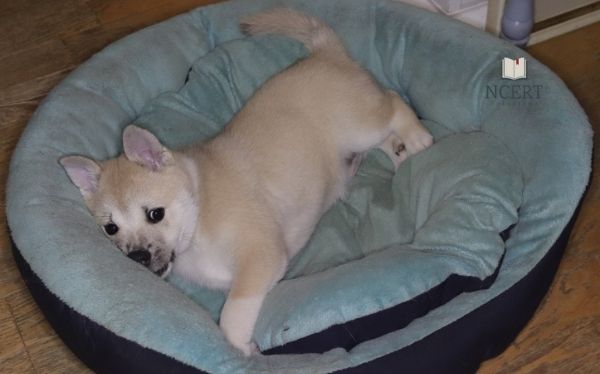
5. Choosing Your Puppy’s Food
Although puppies are born small, not all are the same size. The idea is to choose food according to the size of your dog. If your dog is a Chihuahua or similar breed, you should consider food for small breeds.
If your dog is a Great Dane, even if it is a puppy, it is considered a large breed, so you should consider food for large breeds.
Choose a meal that has among its main ingredients chicken or lamb beef. These ingredients are easy to digest as your dog intakes.
A portion of premium food is the easiest way for your puppy to ensure that its growth will be optimal and healthy, so you should avoid feeding it low-quality products.
Feeding a Puppy
Choosing the best puppy food and learning how to feed a puppy can be confusing. In addition to knowing how to eat, there are hundreds of commercial puppy food options available and home-cooked puppy foods or even raw diets. Too much weight can put stress on immature bones and joints from growing too fast.
Maybe you bought a bottle of large adult dog food at a discount and want to feed all of your dogs the same diet for convenience’s sake. Please think again. Puppies have very different nutrient requirements than adult dogs, so make sure the label specifies those for puppies.
Commercial Food Categories
There are three main categories of pet food
- super-premium
- premium, and
- low-cost products
These are common words with common terms. But some generalities apply.
Super-premium foods have best for puppies. They have the highest nutrient density—the puppy doesn’t need to eat as much and the highest digestibility. To accomplish this, these foods use the most expensive and top-quality ingredients.
Excess fat makes foods very tasty so puppies eat the diet willingly. Higher digestibility means you clear less poo as most of the food is used by the body.
Super-premium foods are primarily marketed through specialty pet stores or veterinary clinics. Picky puppy eaters who have difficulty gaining a healthy amount of weight can benefit from super-premium foods.
Premium name-brand products can be found in many grocery stores. They are not as expensive as the Super Premium but have solid-quality ingredients. overall these products’ work may be fine.
Specialty brands are often super-premium or premium. They vary in quality and generally cost more because the manufacturer makes smaller quantities and often distributes regionally.
Changing puppy food
Before you bring it home, ask what your puppy is used to eating. sometimes a change in puppies’ food can cause diarrhea.
When choosing commercial puppy food, it is important to learn how to read pet food labels. If you decide to prepare at the house — either cooked or raw—it is important to understand basic puppy nutrition.
Why “puppy” food?
An eight-week-old puppy needs twice the calories per day as an adult dog. The puppy needs more nutrition such as protein, fat, calcium, and phosphorus. These nutrients must be in proper balance because too much or too little can cause problems. Commercial foods make this easy for you by creating formulations tailored to the needs of a growing puppy.
The smallmouths of some small dogs may require the easy chewing of small kibble. And growing too fast can result in obesity or joint problems later in life for large-breed dogs. Certain foods are specially formulated for large-breed puppies to slow their growth rate.

6. Keeping Your Puppy Healthy
Your dog must be cleaned not only for aesthetic reasons but also for health reasons.
Dog hygiene helps to prevent diseases and helps to keep it in a good physical and psychological form.
Your dog’s health and behavior go hand in hand and directly affect each other.
A sick dog may show few signs of illness or develop behavioral changes, while a healthy dog learns rapidly and displays positive body language.
Other Points
a. A Healthy Dog Starts With You
The Veterinarian is a core member of a dog’s life. Therefore, for your dog’s health, choose a veterinarian which you can trust.
It all starts with puppy vaccinations or screenings for your rescue dog first, then continues through your yearly exams and shots.
b. Be aware of common health problems
Many diseases can afflict your dog. Educate yourself! it can be the best option for the health of your puppy.
Many dogs end up in emergency vet care because of common issues such as poisoning, but even non-emergencies are cause for alarm.
When you bring a dog into your life, you must know the basic signs that your dog is sick.
This itching may be caused by skin scratching, vomiting from digestive problems, or peeing in the house from a UTI.
c. Keep a first aid kit
If you have any questions about which supplies are right, talk with your doctor. In the first aid kit, the products required for the first aid of the puppy are given below –
- Thermometers and lubricants (water-based)
- Antiseptic wound cleanser and wipes (betadine or chlorhexidine based)
- Anti-Bacterial Wound Ointment
- Bonding tape (adhesive and non-adhesive)
- Sterile Non-Stick Wound Pads
- Gauze square
- Bondage scissors
- Tweezers
- Latex gloves
- Eyewash (sterile saline)
- Diphenhydramine (Benadryl)
- Hydrogen peroxide, fresh and not uncovered (to induce vomiting, not for wounds)
- Washed towels, clothes, and blankets
- Nail trimmers and styptic powder
- a pet emergency instructional book
Alternatively, You Can Also Buy Pet First Aid Kits Assembled.
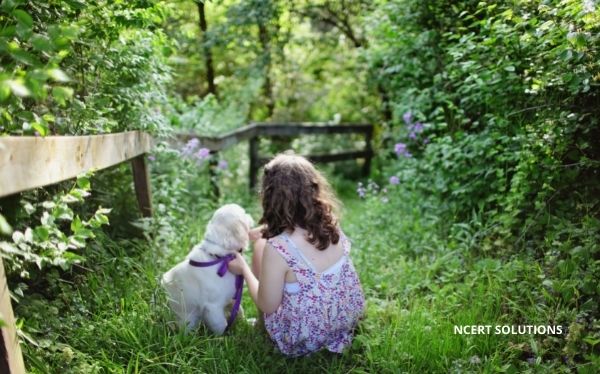
7. Puppy Vaccinations
If there is a small puppy in the house, you should take special care of his vaccinations. This protects him from diseases and saves other people from dangers like possible infection of his bites.
- After 4 weeks, vaccinate the puppy with DP vaccine. DP vaccine contains Canine Distemper Virus and Canine Parvo Virus.
- A nine-in-one vaccine is given in every six weeks. This one vaccine has the ability to protect against nine types of diseases.
- The corona vaccine is given to the dog at the age of eight weeks. This vaccine protects the puppy from canine adenovirus type 2.
- An antirabies vaccine is also given that protects him from rabies at the 12th-week puppy
- Canal cough vaccine, given at 16 weeks of age.
- After this, give deworming doses from time to time.
